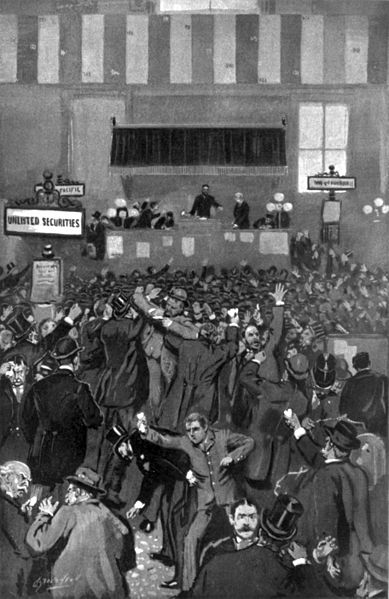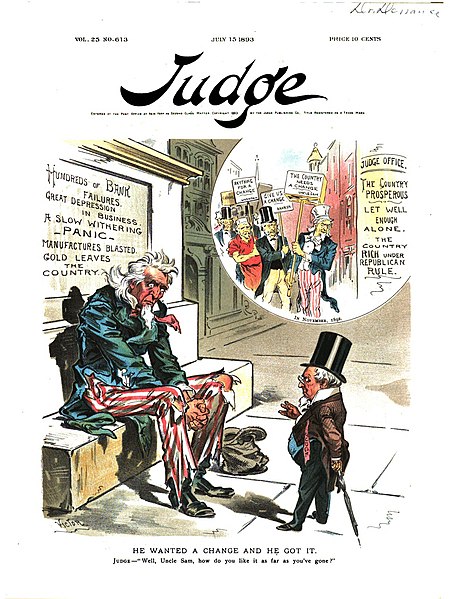The Panic of 1893 was an economic depression in the United States that began in 1893 and ended in 1897. It deeply affected every sector of the economy and produced political upheaval that led to the political realignment of 1896 and the presidency of William McKinley.
Drawing in Frank Leslie's of panicked stockbrokers on May 9, 1893.
The pro-Republican Judge magazine blamed the Panic of 1893 on the Democratic victory in the 1892 election.
The 1896 Broadway melodrama The War of Wealth was inspired by the panic of 1893.
The Grand Central Depot was an important hub for rail transportation, a major part of the shipping industry in the late nineteenth century
1896 United States presidential election
The 1896 United States presidential election was the 28th quadrennial presidential election, held on Tuesday, November 3, 1896. Former Governor William McKinley, the Republican nominee, defeated former Representative William Jennings Bryan, the Democratic nominee. The 1896 campaign, which took place during an economic depression known as the Panic of 1893, was a political realignment that ended the old Third Party System and began the Fourth Party System.
Image: William Mc Kinley by Courtney Art Studio, 1896 (cropped)
Image: William Jennings Bryan 2 (cropped)
McKinley/Hobart campaign poster
Bryan's famous "cross of gold" speech gave him the presidential nomination and swung the party to the silver cause








